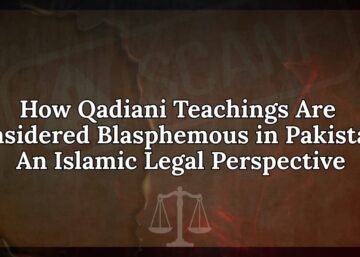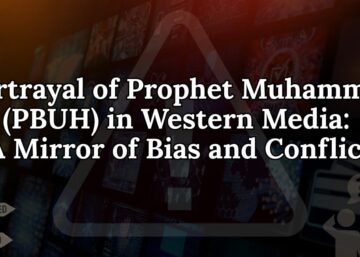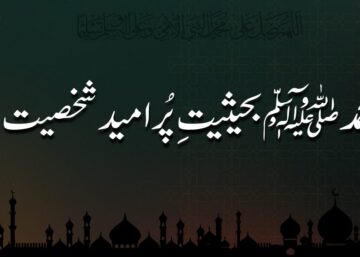Introduction
Mirza Ghulam Ahmad Qadiani, the founder of the Ahmadiyya movement, not only claimed to be a divinely appointed figure but also made harsh statements about those who did not accept his claims. His views on Muslims who rejected him were extreme, often labeling them as disbelievers, misguided, or even worse. This article explores his statements regarding mainstream Muslims, analyzing how he perceived them and the consequences of his divisive rhetoric.
-
Declaring Non-Ahmadi Muslims as Disbelievers (Kafirs)
Mirza Qadiani repeatedly asserted that Muslims who did not accept him as the Messiah and Prophet were no longer part of Islam. This claim contradicts mainstream Islamic belief, which holds that belief in the finality of Prophet Muhammad (PBUH) is a fundamental tenet of faith.
-
In Anwar-e-Islam (Page 30), Mirza Qadiani states:
“God has revealed to me that every person who has heard my claim and has not accepted me is a disbeliever (kafir).”
-
In Haqiqat-ul-Wahi (Page 179), he further declares:
“Those who do not believe in me are out of the fold of Islam, and their prayers are worthless.”
Such pronouncements effectively excommunicated all Muslims who rejected his claims, creating a sharp division within the ummah.
-
Declaring That Non-Ahmadi Muslims Are Hell-Bound
Beyond merely labeling them as disbelievers, Mirza Qadiani also declared that all those who rejected him would be condemned to Hell.
-
In Aina-e-Kamalat-e-Islam (Page 50), he writes:
“Whoever does not accept me is rejecting God’s command and will be thrown into Hell.”
-
In Haqiqat-ul-Wahi (Page 163), he proclaims:
“Those who oppose me will suffer a fate worse than the enemies of previous prophets.”
Such statements go against Islamic teachings, which emphasize that judgment belongs solely to Allah.
-
Calling Muslims ‘Children of Prostitutes’
One of the most shocking aspects of Mirza Qadiani’s rhetoric is the language he used against those who denied his claims. In some instances, he resorted to vile insults.
-
In Najm-ul-Huda (Page 10), he wrote:
“Every Muslim who does not accept me is the child of a prostitute.”
This statement not only insults mainstream Muslims but also contradicts the ethical and moral standards set by Prophet Muhammad (PBUH), who never used such derogatory language even against his staunchest enemies.
-
Equating Opposition to Him with Blasphemy
Mirza Qadiani frequently compared those who rejected him to the disbelievers who opposed past prophets, drawing parallels between himself and earlier messengers.
-
In Tadhkirah (Page 256), he states:
“Those who deny me are worse than Abu Jahl and Abu Lahab.”
-
In Haqiqat-ul-Wahi (Page 206), he likens his opponents to Satan:
“Rejecting me is like rejecting God’s chosen one; such people are like devils.”
These statements positioned him as a figure whose rejection was equated with rejecting divine truth, despite the fact that Islam clearly upholds the finality of Prophet Muhammad (PBUH).
-
Forbidding Ahmadis from Praying Behind Non-Ahmadis
Mirza Qadiani’s stance on mainstream Muslims went so far as to forbid his followers from praying behind them, effectively creating a sectarian divide.
-
In Anwar-e-Khilafat (Page 89) , he instructs:
“It is forbidden for any Ahmadi to offer prayers behind a non-Ahmadi Imam.”
-
In Maktubat-e-Ahmadiyya (Vol 5, Page 300), he reinforces this notion:
“The prayers of those who reject me are invalid.”
This directive disrupted unity in mosques, further isolating his followers from the broader Muslim community.
-
Declaring That the Kaaba and Hajj Hold No Significance for Non-Ahmadis
In mainstream Islam, Hajj is considered one of the five pillars of faith. However, Mirza Qadiani belittled the importance of Hajj for those who did not accept him.
-
In Izala Auham (Page 74), he wrote:
“The pilgrimage of those who reject me is meaningless, and their prayers in the Kaaba are worthless.”
This statement directly contradicts the Qur’an, which emphasizes the importance of Hajj for all Muslims.
Conclusion
Mirza Ghulam Ahmad Qadiani’s views on Muslims who rejected him were extreme and divisive. By declaring them disbelievers, condemning them to Hell, using vulgar insults, and forbidding social and religious interaction with them, he created a schism in the Muslim community. His statements contradict the core principles of Islam, which emphasize unity, respect, and tolerance among believers.
Such divisive rhetoric exposes the true nature of the Ahmadiyya movement—not as a unifying force, but as a sect that actively sought to exclude and denigrate the vast majority of Muslims. It is essential for Muslims to recognize these distortions and uphold the authentic teachings of Islam, which emphasize the oneness of the ummah and the finality of Prophet Muhammad (PBUH).



